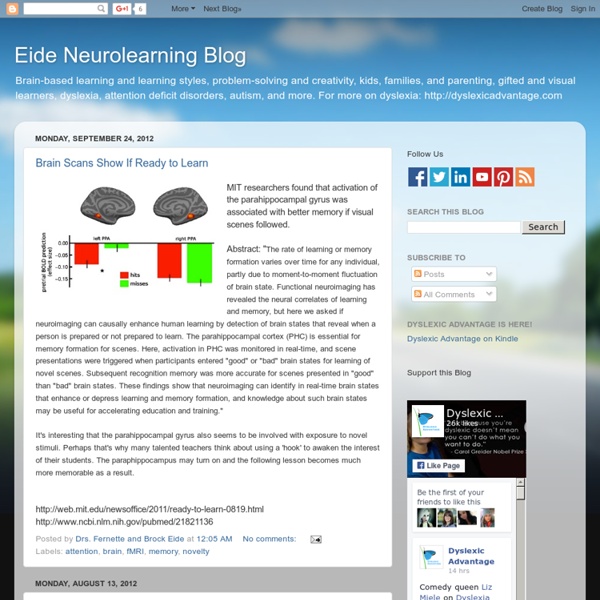



Gifted Homeschoolers Forum “ -- Zen Koan We are all underachievers. Or so it seems to me. That most of the time we could do better as individuals seems obvious. Psychometricians often claim we are smarter than ever. I don’t know – I tend to think that while as individuals we may be getting smarter (better nutrition and all, though make sure to supplement those Omega-3s), our collective intelligence, in our neighborhoods and in the world community, is increasingly impoverished, and, as a society, we get dumber all the time. Maybe it just feels that way because we could do – we could -- so much more. I am far from the first to have had this thought. Ah, how shameless—the way these mortals blame the gods. From us alone, they say, come all their miseries, yes, but they themselves, with their own reckless ways compound their pains beyond their proper share. Perhaps the gods themselves are underachievers. Let’s begin with overachievement. We discover mental tricks that allow us to go the extra mile. can retard performance.
Gruener Consulting LLC | Positive Discipline Parent and Classroom Education, Presentations and Seminars untitled What Inspires You? This is your INSPIRATION BANK. You will create a page in your “Inspiration Journal” for each of these ideas. There are no limits for your Inspiration pages. I want you to open your mind, use your senses and creativity. -Things you have seen that are interesting -Close observations of objects and people, capturing sights, sounds, moods, tastes, etc. -Memories from places you have visited (vacations) (for example- Disney World, New York City, camping in Georgia, mountains) -Writing generated from photographs -Experiences you have had with animals -Experiences you have had with family -Setting ideas and stories revolved around places we “visit” on our region tour and virtual “field trips” -Family stories that you know -Entries about things you deeply care about -Celebrations or victories -Dreams -What fascinates you -Fantasy -Imagine interviewing a person in history -Imaginary field trips -Things you regret, and things you are proud of. -Things that are easy and things that are hard.
Positive Discipline Association - Home Planet of the As « Chasing Hollyfeld Like most schools, September is when we all start to schedule our first parent-teacher conferences of the year. We began this process when the girls started kindergarten, eagerly awaiting the conference, and hoping to hear those words every parent (thinks they) want to hear: she’s smart, she’s wonderfully behaved, she’s doing just great. Our first conference for the girls was a shock: we’re not sure what to do with them. Then we moved into the full-time GT program, and the discussion at the conference began: so we think she needs to skip a grade. I’m sure some parents react calmly to these sorts of discussions. The result is that we are not typical GT parents at the conferences. But not for the reasons you’d think. I can hear all of you saying now: why push your kids? For some kids, this is actually the right thing to do. But the data would say we parents should do otherwise when it comes to school. So, we’ve taken the other path. Like this: Like Loading...
SENG Blogs - Mom Congress - 10 Best Educational Websites for Kids (that are free!) Mom Congress - 10 Best Educational Websites for Kids (that are free!) By Melissa Taylor September 27, 2012 | 3:03am EDT Full Size Image My kids could easily become addicted to technology, especially as they grow older and find more to do online. But, I still keep their screen time limited and focused on learning. 1. Find all your favorite PBS characters, each with learning games for kids to play: Clifford, Curious George, SuperWhy, The Cat in the Hat, and lots more. 2. Discover a new wonder each day. 3. National Geographic Little Kids features games, crafts and recipes, science, videos, and animal information. 4. Games, videos, information, cool photos, and more will keep your kids engaged and learning on this educational site. 5. Math and reading video-like games like math baseball and Mad Libs Junior. 6. Tweens hang out in Whyville to play learning games and socialize. 7. J.K. 8. Get into cooking on this kid-friendly cooking website with lots of videos and recipes. 9. 10. Related Links
Positive Discipline And Gifted Children Welcome | Global #gtchat Powered by TAGT Welcome to the Official blog of Global #gtchat Powered by the Texas Association for the Gifted and Talented on Twitter. Here you will find weekly summaries of the latest chats and links from those chats. There will also be news and announcements concerning upcoming topics, expert guests and where in the world to find Global #gtchat. Global #gtchat is a weekly Twitter Chat on Friday beginning at 7PM ET/6PM CT/4PM PT is the U.S., midnight (12AM Saturday) in the U.K., 1AM for most of Europe and 9AM on Saturday in eastern Australia. Find your time at Watch this blog for news about an additional chat time on Saturday mornings (U.S.). So, pull up a chair, bring your favorite beverage and enjoy! Like this: Like Loading...